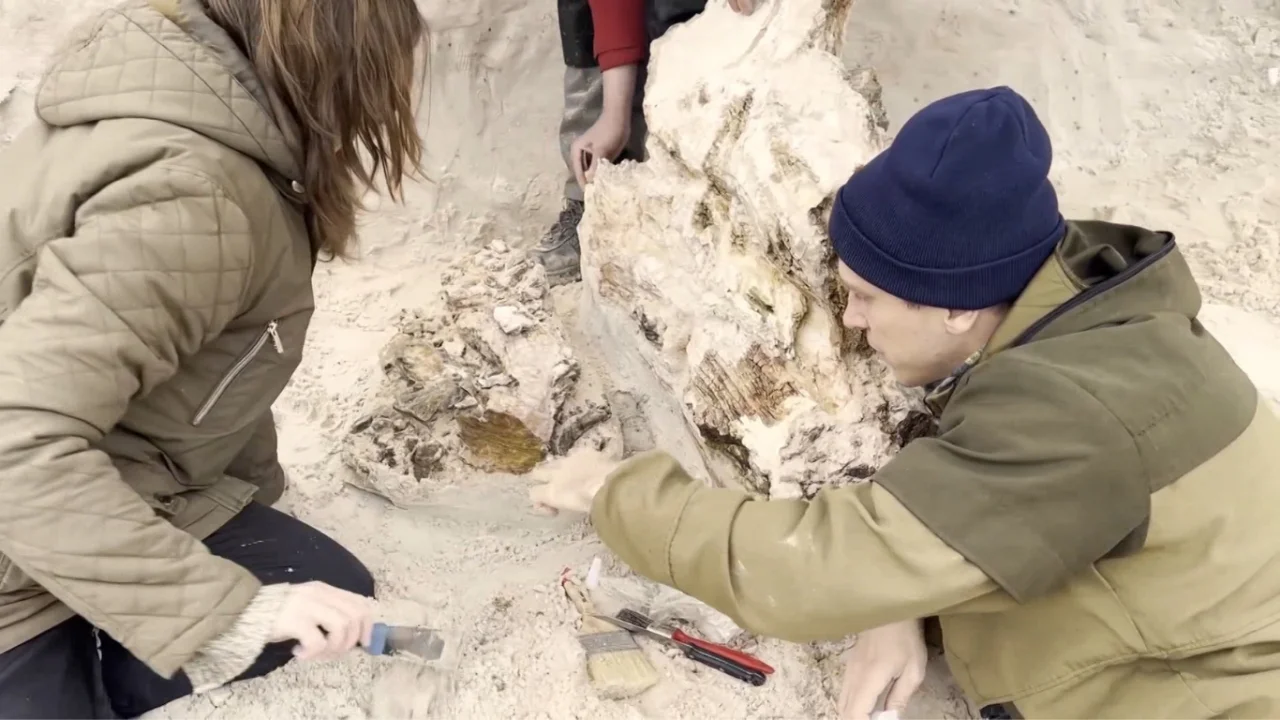A 385 million-year-old tree was found in Leningrad

A fossil of a tree estimated to be around 385 million years old was discovered in the Shalovo-Perechitskiy sand mines located in the Leningrad region. This was reported by Zamin.uz.
According to paleontologists from Saint Petersburg State University (SPbSU), this find belongs to the Devonian period and is among the oldest specimens found on the Russian platform.
Scientists emphasize that the tree's developed root system was identified for the first time as being directly connected to the main trunk. This discovery is significant for the study of prototaxites.
Researchers have been debating the nature of this type of plant for 150 years. Initially, during excavations, specialists thought it was a different find, but after studying the extensive root system, it was confirmed to be a tree fossil.
Experts believe this discovery will help clarify several issues in biology and geology. In particular, it will allow for determining the tree's taxonomic classification, studying the geographic distribution of the earliest plants, and understanding their mechanisms of adaptation to terrestrial environments.
Additionally, this find contributes to a deeper understanding of the formation processes of the earliest soil layers on Earth. Once the research is completed, the 385-million-year-old tree trunk will be preserved at the Paleontology Museum of Saint Petersburg State University.







